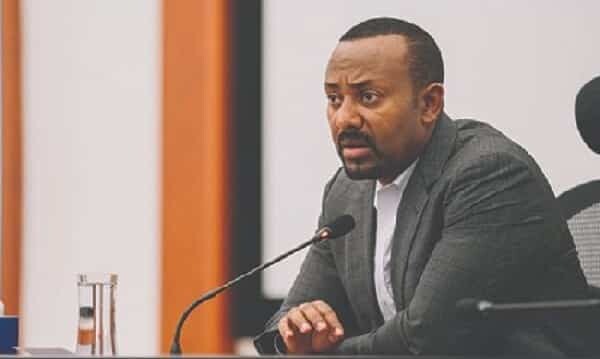By Dawit Endeshaw
ADDIS ABABA (Reuters) – Ethiopia’s parliament on Tuesday voted for an early end to a six-month state of emergency, effective immediately, adding to signs that a bloody conflict between the government and rebellious Tigrayan forces could be easing.
 The war in Africa’s second-largest nation has largely ground to a stalemate, and diplomats helping to mediate between the two sides are cautiously optimistic that progress towards peace is being made.
The war in Africa’s second-largest nation has largely ground to a stalemate, and diplomats helping to mediate between the two sides are cautiously optimistic that progress towards peace is being made.
The state of emergency gave the government power to detain citizens without charge and search homes without a warrant. Thousands of Tigrayan civilians were rounded up and held in prisons and warehouses.
Ethiopia imposed the order in November after Tigrayan forces invaded two other regions, threatening the capital.
But a government offensive in December pushed the Tigrayans back, although fighting continues in the region of Afar, and Tigray – where millions depend on food aid – remains cut off with no food arriving since mid-December.
Parliament’s decision to lift the state of emergency came three weeks after cabinet approval.
The vote was not a rubber stamp, underscoring political divisions that Prime Minister Abiy Ahmed must manage. Of 312 lawmakers voting, 63 opposed the motion, while 21 abstained.
Tesfaye Beljige, chief government whip, told lawmakers the state of emergency was “causing more damage that its benefits”, saying the law was restricting tourism and economic activities.
But Desalegn Chanie, of the opposition National Movement of Amhara party, who voted against, said lifting it now “in order to please the diplomatic community without ensuring the safety of fellow citizens” was premature.
RIGHTS CONCERNS
Ethiopia’s state-appointed rights commission said some human rights were not being upheld after the order was imposed.
Thousands of ethnic Tigrayans were detained, including very elderly people, nursing mothers and children, the commission said. Police denied targeting any ethnic group, saying they targeted suspected supporters of the Tigray People’s Liberation Front (TPLF) political party.
The TPLF dominated Ethiopian politics before Abiy came to power in 2018. Afterwards, relations between the two sides nosedived, and war erupted in November 2020.
Normally, Ethiopian law demands prisoners are either charged or released. Attorney General Gedion Temothewos and his spokesman did not immediately respond to requests for comment.
But Lemma Tesema, chairman of the state of emergency inquiry board, told lawmakers on Tuesday that those who were detained under the state of emergency “will be treated by the regular legal system.”
The United Nations has said it believes international mediators are making progress.
“Talks continue and there is certainly less hostility than there was a few months ago. We are in a much better place,” Amina Mohammed, the U.N.’s Deputy Secretary-General, said last week after visiting Ethiopia.
(Reporting by Dawit Endeshaw; Writing by Maggie Fick; Editing by Katharine Houreld, Frank Jack Daniel and John Stonestreet)

This is the right thing to do. If it is needed it should be localized.